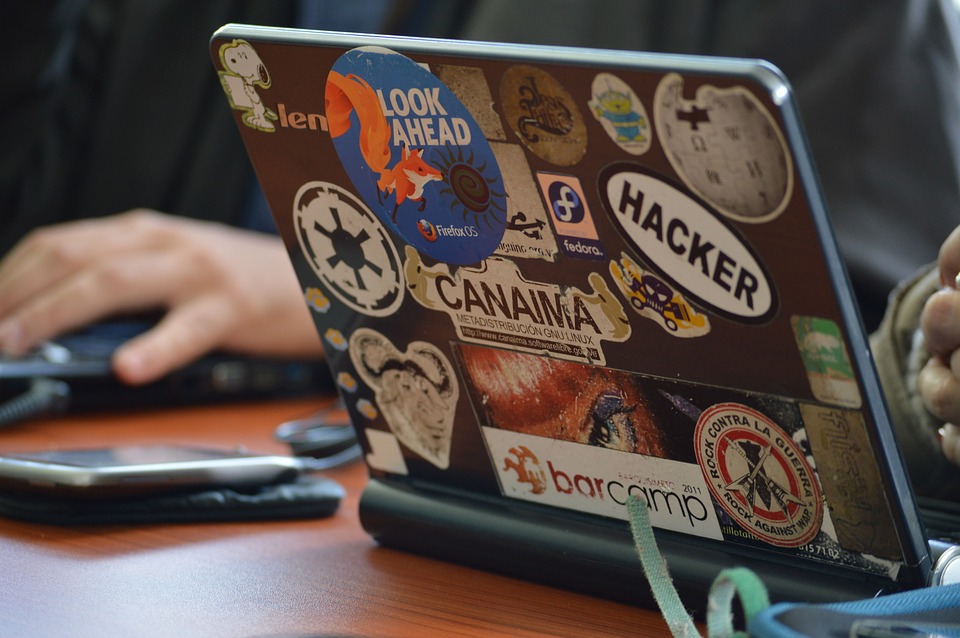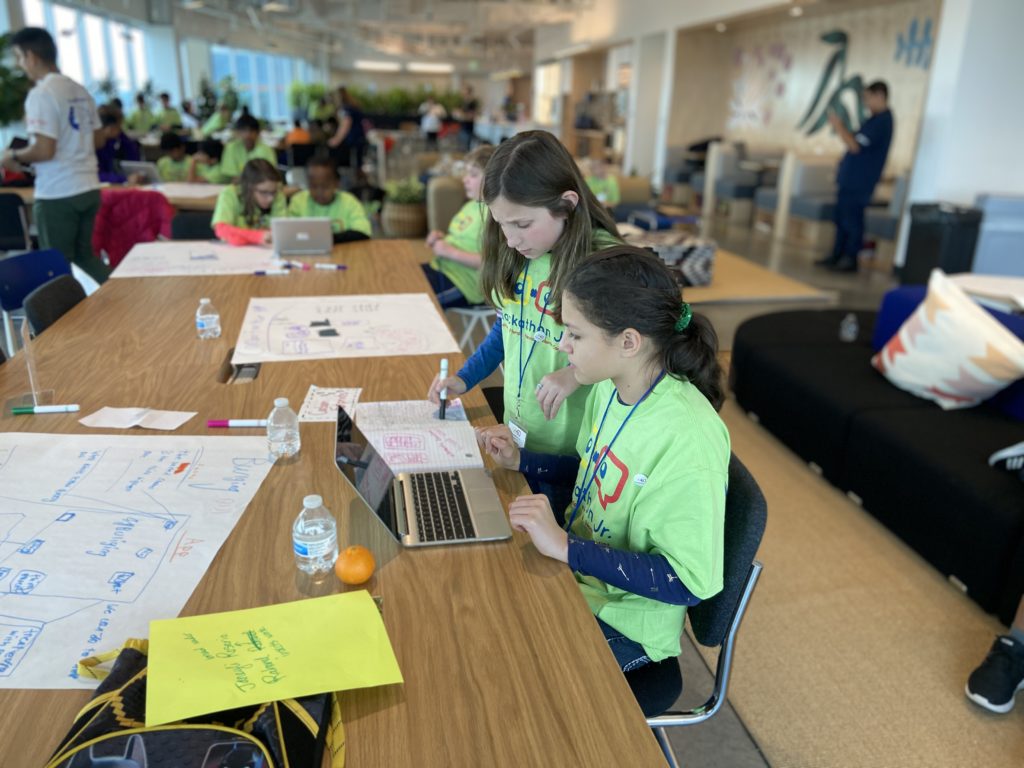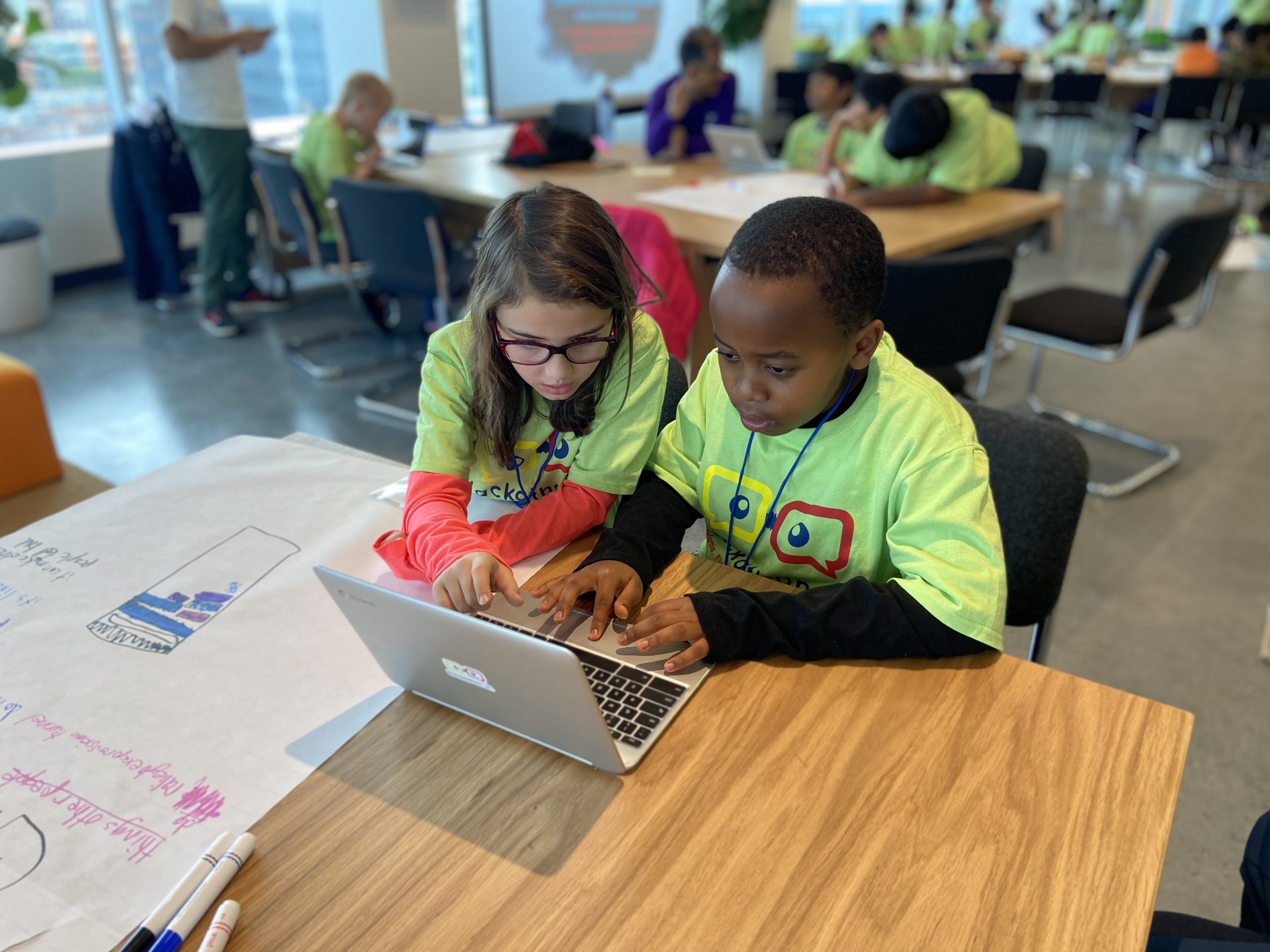
By Jan Brennan
“Gain technology and coding proficiencies, enhance your problem-solving skills, excel in communication and collaboration, forge valuable relationships and make a positive difference in your community.” This is the pitch civic organizations are making to attract young people to hackathons and similar events that explore issues and foster problem-solving efforts using civic data.
As more community data is available online, civic entities are looking for ways to engage the public in mining the data for insights and solutions. Civic hacking is good for cities and organizations.1 The primary benefit is to innovate civic solutions, but hackathons also expand opportunities for civic engagement, spur innovation, support technology education and economic development, and strengthen relationships and community capital.
Hackathons benefit student academic and personal development as communities gain ideas from innovative, tech-savvy youths. Hack Club, a website and calendar for high school coding clubs lists 552 high school hackathons in 37 states. The rising popularity of hackathons has more civic entities wondering if they should consider hackathons as a public engagement and problem-solving tool.
Selection of hackathon issues is dependent on the civic datasets available. Federal agencies are required by the Open Government Data Act to share their data through Data.Gov, the unified federal data repository with over 261,000 free datasets. States, cities and counties are following suit by establishing local open data portals. The Sunlight Foundation is a good source for Open Data Policy Guidelines that address what data should be made public, how to make data public and how to implement an open data approach. Themed hackathons typically use datasets curated for the event, such as the LA Arts Datathon, which draws from over 30 arts datasets, while a municipal open data portal can facilitate a broad range of hackathon issues and exploration. Columbus Ohio’s Smart City Hackathon models how municipal problems and datasets can be paired to address issues such as Accessible Transit or Food Access.
What is a Hackathon?
The term “Hackathon” refers broadly to collective problem-solving using technology. Participants work in small groups to analyze civic issues and related data and to generate solutions during an intensive, time-limited event. Datathons and CodeFests are also popular titles for these events. It is important to clarify that “hackathon” refers to tips and tricks to improve performance and outcomes, not to malicious, unauthorized computer hacking.
The convener may be a collaboration of government entities, nonprofits, educational institutions, foundations, businesses and students themselves. Hackathons typically take place in-person but may be conducted online. Participation may be open to the general public, targeted to a particular population such as young people, or limited to content and technical experts. Technology workshops or coding courses may be prerequisites to attend or the event may require no previous coding or technology experience.
The hackathon may take a single day, weekend or longer, with participants sleeping on site. Hackathons may be free or have a modest participant fee. Hackathons may be highly competitive, with teams vying for prizes, or may stress cooperation. Teams may present their ideas to peers, judges or government and community leaders. What all hackathons have in common are the goals of community engagement and problem-solving.
The goals and outcomes of hackathons also vary widely. In most cases, the goal is to create protype technology solutions such as computer and mobile applications, games, data visualizations, projections or explanatory or instructional materials. In some cases, however, the use of technology is not involved. Participants merely sketch out their solution ideas on posters. For youth hackathons, the event often balances educational and growth opportunity for students with the idea of developing civic solutions.
It is important to understand, however, that civic issues will not generally be resolved by a hackathon alone. Solution ideas will need further development and technology demonstrations will be very basic. A hackathon launches or furthers a search for solutions, but participants will not walk away with the job completed. As highlighted in the planning section below, hackathon hosts must have a plan to build on the ideas and solutions generated at the event.
Why a youth hackathon?
For students, a hackathon provides the chance to apply learning and skills to real-world issues and have tangible community impact. Hackathons offer the community a chance to benefit from youth input, while developing the future technology workforce and helping establish a culture of civic participation and engagement.
Young people are ideal targets for hackathons given their comfort with technology, data, crowdsourcing and “maker” culture. Young people make good civic problem-solvers. They offer innovative perspectives and creative solutions. Also, many of the public issues we face, for instance, environment and health policy, will have a disproportionate impact on those who are young today, making their input critical to solutions. Another plus is the development of social skills. Spending more time online and on-screen lowers social skills, so youthful hackers benefit by working in a collaborative group. Their inclusion ensures that issues important to the young are addressed. It instills confidence and empowers the voice of youth.
A youth hackathon also provides ample opportunities for adult participation. Keeping in mind that it is important for young people to take the lead, adult volunteers, including parents, may support planning and event logistics or serve as coaches for youth hackathon teams. Adult mentors typically offer issue expertise, task guidance and encouragement.
What data and issues can youth hack?
The scope of civic issues addressed through youth hackathons is enormous, from food insecurity to autism. Some hackathons establish a specific theme such as bullying or transportation, a general issue area such as environment, or they may provide opportunities for groups to choose from a broad range of issues. While problem-solving is a primary objective, hackathons may also seek to investigate or promote understanding of an issue or to explore the connection between multiple issues.
There can be advantages to establishing a hackathon theme in advance, attracting participants interested in that issue and allowing for preparatory workshops or materials. In many cases, the hackathon may start off with expert presentations on the issue to ensure a shared understanding among participants. In other cases, the hackathon topic is broad community improvement and teams can form around any shared interest. This will require time to establish topics and coalesce teams, as well as allow teams to conduct adequate research to understand the issue and possible solutions.
What are models for successful hackathons?
Hundreds of youth hackathons take place annually, so it is easy to explore hackathons of various themes. These brief examples demonstrate the variety and opportunities of hackathons:
Hackathon Jr., Raleigh, North Carolina
A youth-designed app to measure your carbon footprint is headed to market after being developed at a June 2019 Raleigh, North Carolina, youth hackathon organized by Hackathon Jr. in partnership with VACO and Downtown Techies and hosted at WeWork Raleigh.
Another hackathon team that focused on teen mental health presented their idea for a software app to Raleigh Health & Human Services. The software application would help youth identify symptoms of anxiety and depression, as well as offer links to mental health services.
The nonprofit Hackathon Jr. runs 1-day competitive hackathons for groups of 75-80 3rd to 8th grade youth to develop phone app solutions to environmental and social issues. Winning student teams receive laptops. Hackathon Jr. promotes online tutorials from Code.org and Scratch to help prepare students for hackathons, but there are also roles for students without any computer experience.
 Hackathon Jr. helps recruit industry professionals to serve as mentors and judges and raises an average of $8,000 to purchase the laptop computer prizes for winning student teams and for their own travel and staff support expenses. The online platform Project Code allows teams to continue working on projects after the hackathon. (With younger students as the focus of these hackathons there is greater emphasis on youth benefits than on sophisticated civic solutions.) In addition to technology training, computational thinking and problem-solving skills, Hackathon Jr. emphasizes the value of social-emotional learning, empathy, collaboration and communications skills to this digital generation.
Hackathon Jr. helps recruit industry professionals to serve as mentors and judges and raises an average of $8,000 to purchase the laptop computer prizes for winning student teams and for their own travel and staff support expenses. The online platform Project Code allows teams to continue working on projects after the hackathon. (With younger students as the focus of these hackathons there is greater emphasis on youth benefits than on sophisticated civic solutions.) In addition to technology training, computational thinking and problem-solving skills, Hackathon Jr. emphasizes the value of social-emotional learning, empathy, collaboration and communications skills to this digital generation.
Smart City Saturday – Youth Trafficking
Several cities have adopted Smart City Saturdays, which regularly bring young people together to solve real world problems. In Austin, San Diego, New York and elsewhere, some of those Saturdays have been devoted to short hackathons on the issue of youth trafficking, facilitated by partner WIT – Whatever It Takes. Students hear directly from those impacted by human trafficking. Ideas that students have generated in the past include social media and public service campaigns, an interactive video game and educational curriculum to heighten awareness and distributing the national trafficking hotline number in hygiene products.
LA Arts Datathon
Democratize was the theme of the third Arts Datathon, a 1-day event held in April 2019 at Los Angeles Central Library. Multiple event tracks challenged artists, arts administrators, researchers, technologists, youth and the public to explore how data can improve access to the arts. A youth-only version might focus more specifically on youth access to arts or creating opportunities for youth artists and creative entrepreneurs.
The Los Angeles Department of Cultural Affairs collects and updates arts datasets available for the Datathon and accessible online. Over 30 downloadable datasets range from library borrowing statistics to data on creative occupations and free concerts in LA public spaces. Links to a variety of data tools also aid analysis. Winning ideas from previous Arts Datathons included a mobile app, mapping bookstores along transit routes, an online platform to connect schools and teaching artists and a tagging system for historical images.
Foster Care Hackathons
This is a great example of hackathons addressing a challenging issue with promising results. Hackathons focused on foster care and targeting foster youth participants were spurred in part by the White House Foster Care and Technology Hackathon in May 2016, which resulted in a new Comprehensive Child Welfare Information System. A New York foster care hackathon led to a program that provides foster youth with computers and technology training and a mobile-enabled online clearinghouse for foster agency, youth and parent resources. A Silicon Valley foster care hackathon identified new tools to recruit foster parents, while #HackFosterCare Los Angeles improved self-sufficiency planning and created a user-friendly scheduling app to facilitate visits between foster children and biological parents.
UbuntuHack, Oakland, California
This innovative hackathon brought Oakland-area teens and police together to build trust and create web and mobile app solutions. A similar hackathon created apps to help young people manage encounters with police. The youthful participants were also able to contribute many innovative technology ideas to the police department and the personal interaction was a valuable result in itself.
Preparing for a Hackathon
- Use Hackathon Toolkits
Several toolkits are available to help guide hackathons and provide learning from those who have undertaken successful hackathons and lived to tell the tale. Here is a sampling:- Hackathon Guide, Joshua Tauberer
- Youth Hackathon Playbook, MaRS Discovery District
- Organizing a Successful Hackathon, Hackerearth
- Datathon Toolkit, LA Arts Datathon
- Experience a Hackathon
It is challenging to organize a hackathon without having seen one in action. Check out video and materials from previous hackathons or participate in an online hackathon. Another great way to start is to conduct a small internal hackathon to address an organizational issue. - Determine what kind of hackathon you will conduct
The theme, level of technology experience and target participants must be aligned. Many youth hackathons partner with school or nonprofit computer or coding programs so that all participants bring a minimum level of technology skills. For example, a popular style of youth hackathon focuses on creating mobile apps, with the students receiving training in advance. If there is not an existing youth technology program, some hackathon hosts create workshops or link to online coding tutorials to help participants prepare. Other hackathons accommodate a broad range of technology skills, including those with no computer experience. Be cognizant that low-income students may have fewer resources and opportunities to develop advance skills.
Your hackathon may be open to all youth or target a particular school, youth program, ages or grades. Some hackathons are restricted to youth of color, girls only or foster youth in order to provide a supportive space and focused hackathon experience. To what extent you want to promote team competition or cooperation is another factor to consider. For all hackathons, adopt a Code of Conduct to ensure a safe and productive environment. You will find sample Codes of Conduct in the hackathon toolkits, or adopt the popular MLH (Major League Hacking) Code of Conduct.
- Select the theme or issues
You may select a theme for your hackathon to prepare and promote in advance or you may allow teams to identify their own interests. It can certainly be easier to pre-select projects and project leaders as it allows participants to better prepare. It also reduces the amount of time at the hackathon required for participants to pitch issues and form teams. The most important thing is to have clear problem statements or questions. For example, if the issue area is health, one problem statement a group could tackle would be “How do we improve the patient experience?” - Recruit partners
Partners play a key role in hackathons, supporting costs, logistics and technology needs. Sponsors and funders can underwrite the costs of the event and prizes. Computers, tablets and technology items are particularly popular prizes for youth hackathons, but prizes may also include cash, scholarships and gift certificates.
Meeting the technology needs of your hackathon is a key partnership goal. This effort includes technology or coding program partners who help prepare students, the technology needed for the teams at the event itself, and tech mentors who can support each team as they attempt to protype their solution. As mentioned above, many youth hackathons have a strong educational emphasis and build on existing computer or coding programs. Particularly if the hackathon will focus on the creation of mobile apps, students must receive preparatory training. There are a variety of local and national organizations who partner to support hackathons for particular issues or audiences.
Participants are typically invited to bring their own laptops and tablets, but your event should be prepared to provide the technology to participants. Youth hackathons often target students who have limited access to computers and technology experience, so it is important to identify a partner who can offer a location for the event with computers and presentation equipment on site, accessible internet connectivity and plenty of power.
A final partnership need is for adult mentors with coding and technology experience who can coach each youth team as they tackle their apps or software prototypes. The business and higher education sectors are typically the best source of volunteer technology mentors. They may also serve as a source for technology or issue presenters and judges to evaluate the project pitches at the conclusion of the event. One recommendation is to ensure that the diversity of these technology mentors matches the diversity of the youth participants.
- Promote your event
In addition to basic event promotion, ensure that you are sharing your youth hackathon in online hackathon calendars and websites. You will also want to conduct targeted youth outreach through schools, youth programs and social media. Be sure to create a #hashtag for your hackathon. - After the Hack
Immediately following your hackathon, consider a social event to solidify relationships and celebrate. Establish follow-up communications plans, such as a shared google drive, Slack, google group or drop box. Be sure to include a participant evaluation and to use those results and a debrief of the event to identify ways to improve your next hackathon. Finally, your hackathon will generate ideas, but have a plan in place to further develop and deploy solutions.
Summary
Hackathons are a valuable tool for public engagement and problem-solving civic issues. When targeting young people, hackathons provide an added dimension of education and workforce development. Meeting the technology needs of hackathons is the most challenging requirement, but it is also an opportunity to engage the business and technology communities in youth education and civic solutions. As with any new strategy, organizations become more skilled at conducting hackathons over time, so begin your hackathon exploration now.
Jan Brennan is a Senior Fellow of the National Civic League and Mountain West Director for the Campus Election Engagement Project. Jan’s passion is to promote civic learning and engagement, from the classroom to public space, drawing on her experience as the Director of the Denver Office Cultural Affairs and Project Lead at the National Center for Learning and Civic Engagement.
1 Code for America, https://www.codeforamerica.org/blog/2013/05/14/10-ways-civic-hacking-is-good-for-cities/



